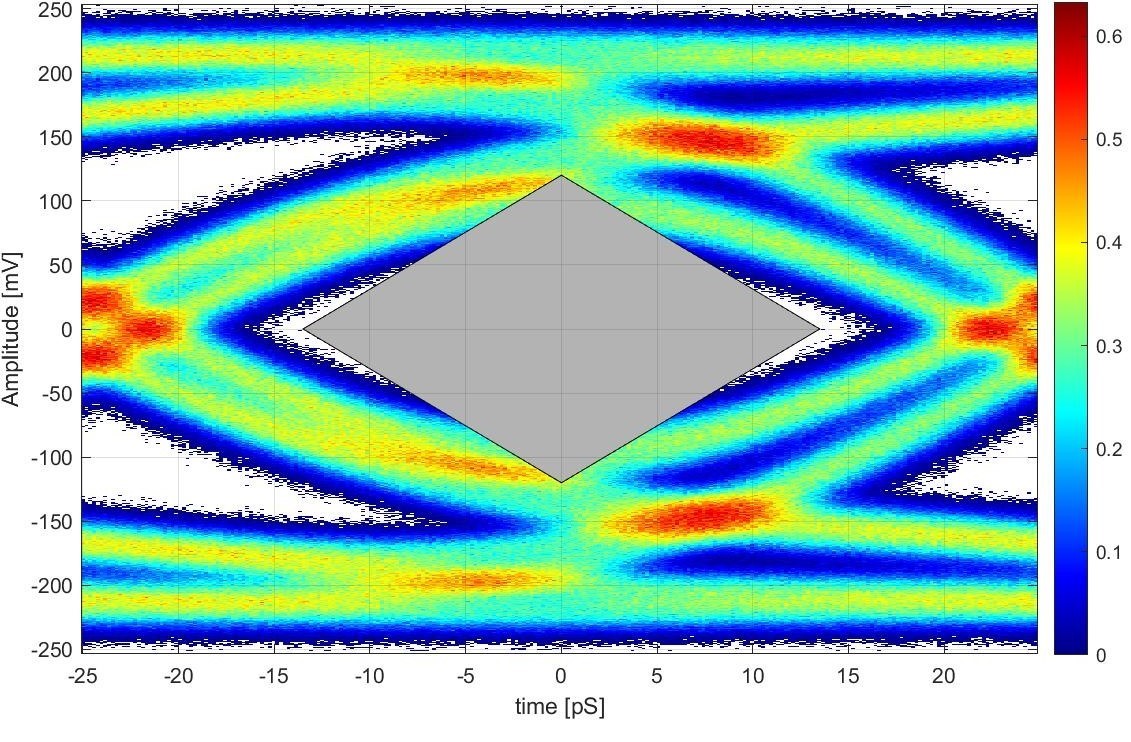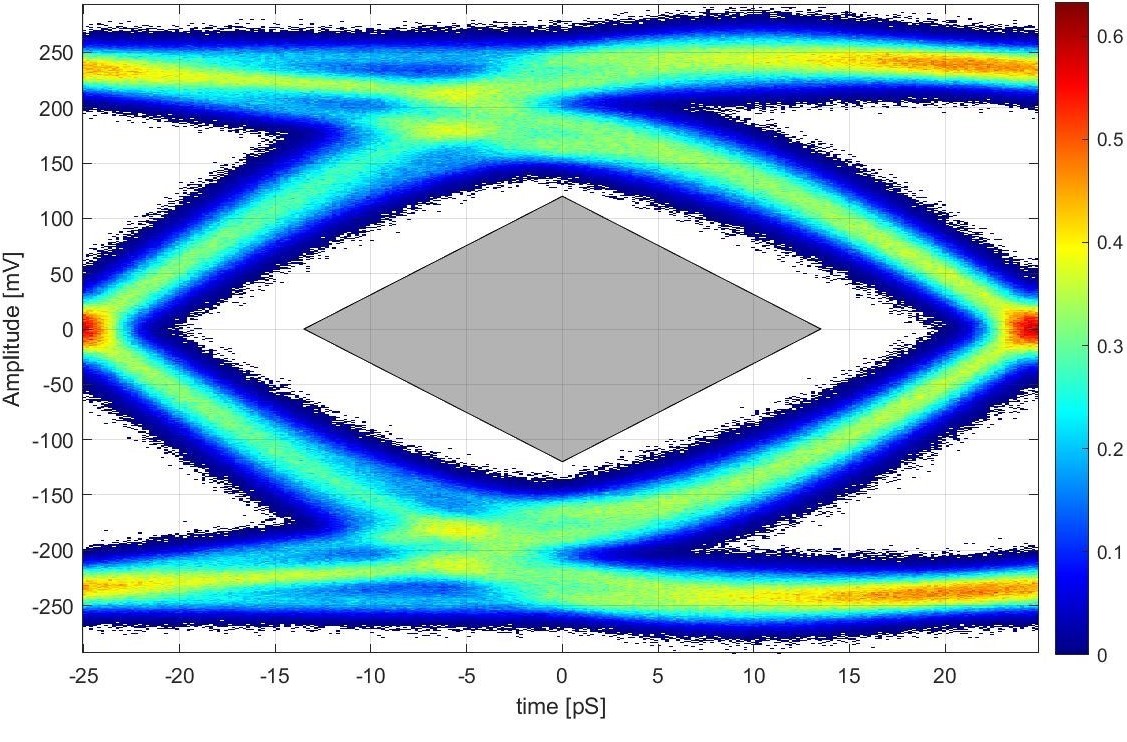JAJSSB8A November 2023 – April 2024 TDP2004
PRODUCTION DATA
- 1
- 1 特長
- 2 アプリケーション
- 3 概要
- 4 Pin Configuration and Functions
- 5 Specifications
- 6 Detailed Description
- 7 Application and Implementation
- 8 Device and Documentation Support
- 9 Revision History
- 10Mechanical, Packaging, and Orderable Information
7.2.1.3 Application Curves
The TDP2004 is a linear redriver that can be used to extend channel reach of a DP link. The redriver can help to pass compliance by removing ISI deterministic jitter at data rates up to 20Gbps (UHBR20). Figure 7-3 - Figure 7-6 shows a typical DP 2.1 Tx compliance channel setup along with compliance Eye Diagrams at TP3_EQ with or without redriver. The comparison of eye diagrams show that TDP2004 can provide signal conditioning by extending horizontal and vertical eye openings that makes a failing eye to pass.
 Figure 7-3 A
Typical 20Gbps (UHBR20) DP 2.1 Tx Compliance Channel
Setup with no Redriver
Figure 7-3 A
Typical 20Gbps (UHBR20) DP 2.1 Tx Compliance Channel
Setup with no Redriver Figure 7-5 DP 2.1
Tx Compliance Eye Diagram at TP3_EQ with no
Redriver
Figure 7-5 DP 2.1
Tx Compliance Eye Diagram at TP3_EQ with no
Redriver Figure 7-4 A
Typical 20Gbps (UHBR20) DP 2.1 Tx Compliance Channel
Setup with Redriver
Figure 7-4 A
Typical 20Gbps (UHBR20) DP 2.1 Tx Compliance Channel
Setup with Redriver Figure 7-6 DP 2.1
Tx Compliance Eye Diagram at TP3_EQ with TDP2004 for Signal
Conditioning
Figure 7-6 DP 2.1
Tx Compliance Eye Diagram at TP3_EQ with TDP2004 for Signal
Conditioning